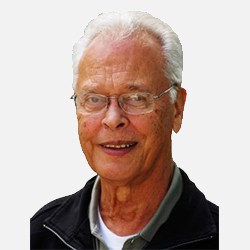The views expressed in our content reflect individual perspectives and do not represent the authoritative views of the Baha'i Faith.
How can one person change the world? Everyone asks that big question sooner or later. I think I’ve found a way—engaging in social discourse with everyone I meet.
What is “social discourse?” It’s simply directing our conversations to issues that matter. Instead of trivial or passing subjects, social discourse means engaging others in meaningful conversations about the real issues that plague our world.
As I’ve traveled the world during the past decade, I’ve met amazing individuals of capacity, and discovered possible links of service that I can use to be of assistance to them in some way. However, I hasten to point out that the larger context within which this has all taken place is the honest and heartfelt exchanges we experienced, which have enabled these wonderful new friendships to begin in the first place, based not solely on the “accident” of our meeting, but more importantly on what might be termed the bond that is possible when two kindred souls happen to encounter each other.
At any given moment, and in social spaces at all levels of society, there are a range of ongoing discourses concerned with various aspects of humanity’s wellbeing and progress: discourses on such subjects as the equality of women and men, peace, governance, public health, and development, to name but a few. Individual members of the Baha’i community—whether through their involvement in the life of the local community, their efforts of social action, or in the course of their studies, occupations, or professional activities—strive to participate fruitfully in such discourses, learning with and from others and offering their personal insights, informed by the Baha’i teachings, to the unfolding discussions. Baha’i-inspired agencies also contribute to discourses associated with aspects of social and economic development relevant to their work. – The Universal House of Justice
In the course of these discourses, I’ve met remarkable individuals. Here are just a few examples:
Dr. K.J. is Chief Medical Officer at the Ayurvedagram Heritage Wellness Center in Bangalore, India. He’s a brilliant physician who lectures in the United States. He knows a professional and Baha’i colleague of mine—Dr. S. Pattabi Raman. He’s coming to the United States, and will be teaching in Seattle, Washington, near where Pattabi lives. I am hoping that this close proximity will enable Pattabi to spend time with him while he is visiting. Also, I have invited him to visit our family in Arizona and meet Baha’i friends who are involved in alternative medicine here.
Sister U.A. is a professor of English Literature in Dublin, Ireland. Her specialty is poetry written by English authors. We connected on the topic of poetry, and I will be sending her selections of poetry written by a Baha’i friend. Eventually I’ll suggest that she examine the poetry of the mid-1800s that addresses the second coming of Christ.
F.U. is a Muslim friend of a Baha’i friend, both of whom live in London, England. I visited F. on my way home from a recent trip. We’ve been emailing one another since our mutual friend had us talk by phone to one another last June when he and I were visiting the Townshend International School in the Czech Republic. That first phone call lasted 3 hours! He’s a special, bright, and sensitive soul who is somewhat lost in knowing in which direction his life should be going. Since we began talking, he has become very close to the Baha’i Faith now, and in his heart considers himself a Baha’i.
P.E.M. is an Instructor in the Department of Philosophy at Santo Tomas University in the Philippines, who teaches in the engineering department. He gave an incredibly brilliant presentation at a conference on mysticism I attended, and we have already been exchanging emails. He and his colleague have invited me to visit them in the Philippines—so I’ve now put the Philippines on my future travel itinerary.
The beginning place for all of the remarkable and fulfilling discourse I’ve had with these new people in my life, as is stated so clearly by Baha’u’llah, is to become friends—plain and simple:
Consort with all men, O people of Baha, in a spirit of friendliness and fellowship. If ye be aware of a certain truth, if ye possess a jewel, of which others are deprived, share it with them in a language of utmost kindliness and goodwill. If it be accepted, if it fulfill its purpose, your object is attained. If anyone should refuse it, leave him unto himself, and beseech God to guide him. Beware lest ye deal unkindly with him. A kindly tongue is the lodestone of the hearts of men. It is the bread of the spirit, it clotheth the words with meaning, it is the fountain of the light of wisdom and understanding. – Baha’u’llah, Epistle to the Son of the Wolf, p. 15.
Now, one more crucial factor to consider—and that is: What is the real purpose and hence the basis for engaging in this type of undertaking? We do this for no other reason than that we love Baha’u’llah, and wish with all of our might to carry out to the best of our ability his bidding—to “consort with all men … in a spirit of friendliness and fellowship.”
While I can’t claim consistency on my part, or always knowing just what to do from moment to moment as I make new friends, or what to say in the moment, or whether I will have the energy to persevere, to whatever extent that I can and am involved, such involvements are always accompanied by and reinforced by the presence of such a feeling of love that results when one, through service and the establishment of friendship, changes the world one heart at a time.
















Comments
Sign in or create an account
Continue with Googleor